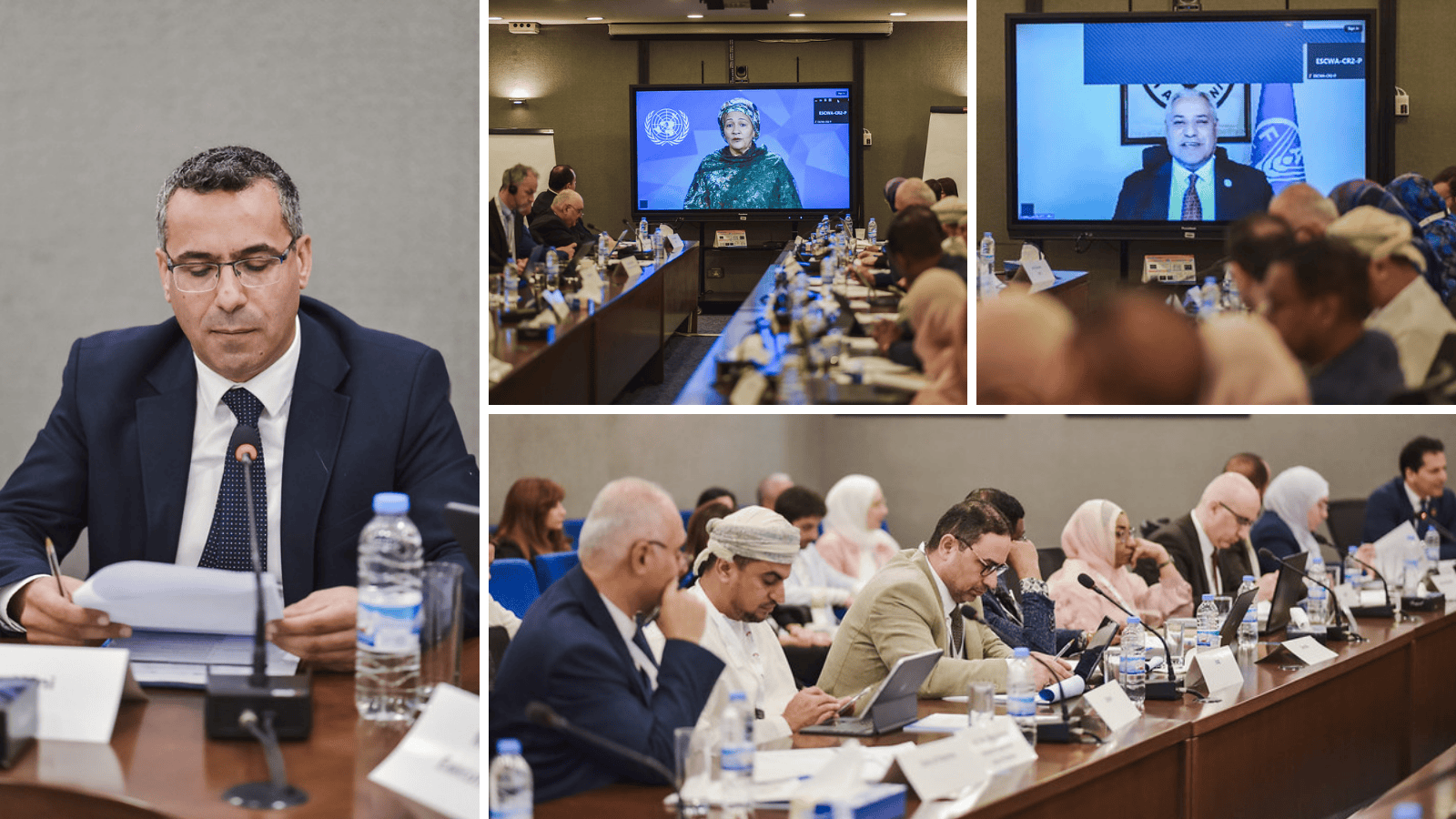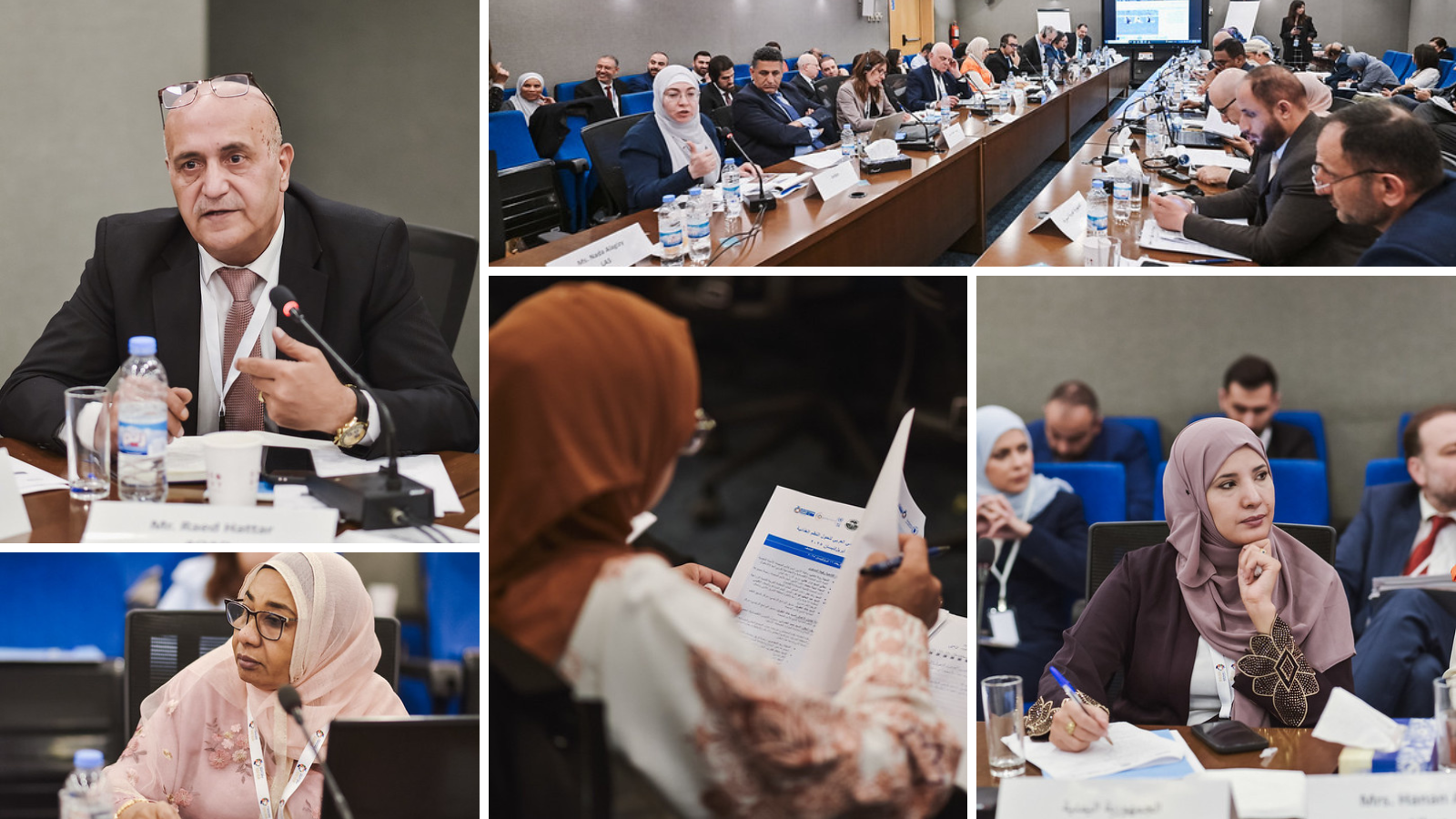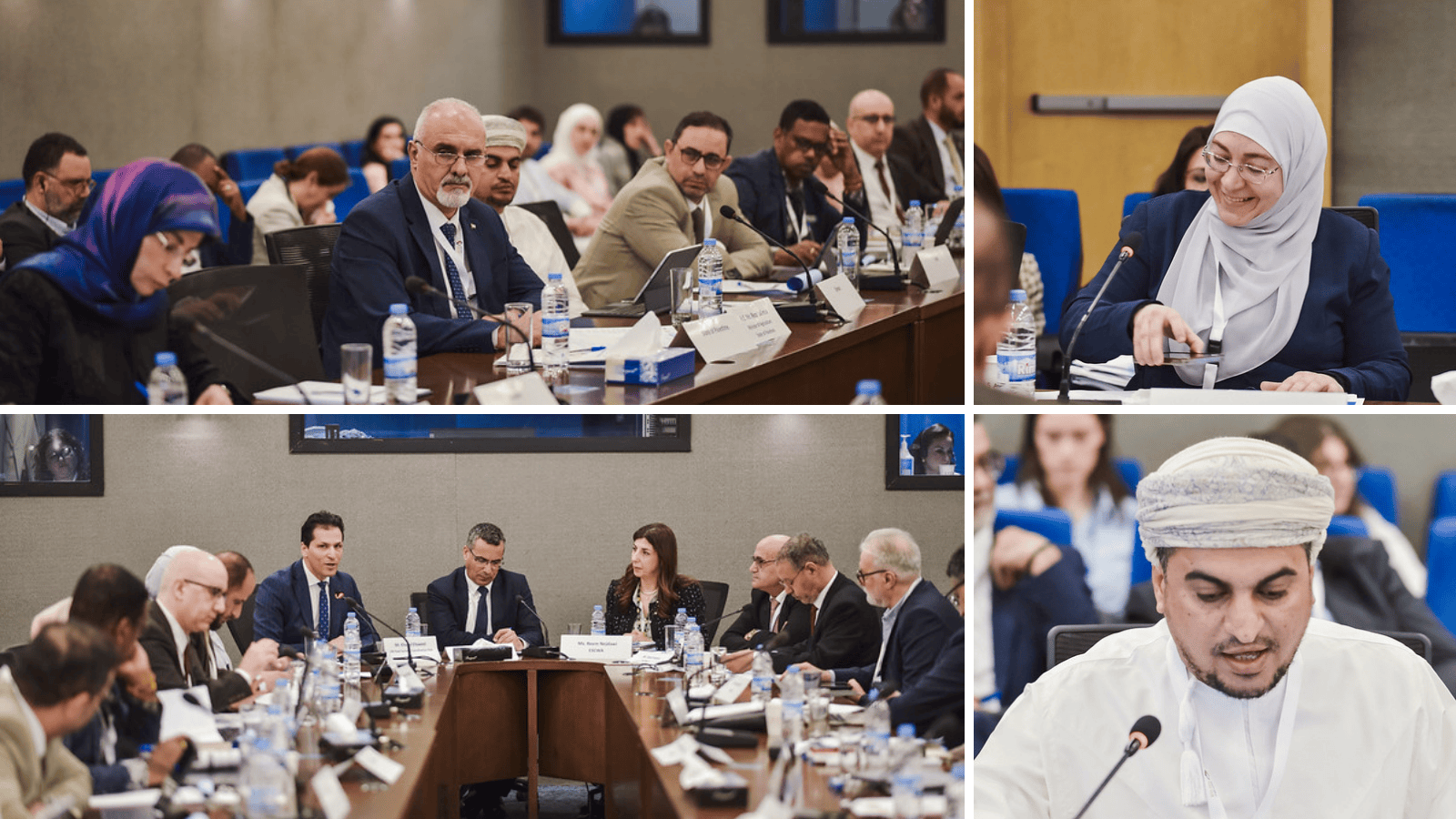Building just and resilient food systems in the Arab Region

©FAO Lebanon/Ralph Azar
The Arab Regional Preparatory Meeting for the UN Food Systems Summit +4 Stocktake (UNFSS+4) took place on 16–17 April 2025. Co-organized by the UN Food Systems Coordination Hub, the Economic and Social Commission for Western Asia (ESCWA), the Food and Agriculture Organization of the United Nations (FAO), the World Food Programme (WFP), and the League of Arab States – Arab Organization for Agricultural Development (AOAD), the meeting brought together representatives from 15 countries across the Arab region.
Government leaders, civil society, researchers, private sector actors, and development partners gathered around a shared goal: transforming food systems across the region to be more resilient, inclusive, and sustainable.
Anchoring food systems in rights, justice, and resilience
“Approximately 40% of the Arab region's population faced moderate or severe food insecurity in 2023—especially women and children,” said Rola Dashti, UN Under-Secretary-General and Executive Secretary of ESCWA. This figure served as a powerful reminder of the need to anchor food systems transformation in the Right to Food.
Participants emphasized that hunger and malnutrition—particularly in conflict-affected areas—must not be seen merely as humanitarian issues, but from human rights perspective. Conflict in the region, particularly in Palestine, Sudan, Yemen, or Lebanon, is setting back progress and disproportionately affecting the most vulnerable households.
Building more just food systems will require ensuring inclusive participation in decision-making, and fair distribution of resources, particularly in a region heavily affected by economic crises, extreme weather events and climate change vulnerability, conflict and fragility, and import dependency and vulnerability to trade disruptions.

Progress through partnerships and national action
Despite complex challenges, countries across the Arab region are making tangible progress. National food systems pathways are increasingly embedded into broader policy frameworks, including development plans, nutrition strategies, and agricultural roadmaps. School feeding initiatives, emergency food programs, and the establishment of food systems and nutrition councils are strengthening governance structures.
“The Arab region has demonstrated resilience, integrating food system strategies, international policies, strengthening governance, and reducing dependency while building community resilience,” noted UN Deputy Secretary-General Amina J. Mohammed.
However, participants agreed that deeper collaboration is essential. “Arab cooperation is crucial to address shared challenges in food systems transformation,” said Nizar Hani, Lebanon’s Minister of Agriculture. Abdulhakim Elwaer, FAO Assistant Director-General and Regional Representative for NENA, echoed this view, underscoring that “we are required to work together—one country alone cannot achieve this.” Strengthening regional and cross-regional partnerships, including with neighboring Africa, will be vital for scaling impact.

Unlocking finance and centering inclusion
Financing remains a major barrier to food systems transformation. Despite increasing humanitarian needs, the region receives only a small fraction of global support. The gap is significant: an estimated $127 billion is needed just to address water scarcity. Meanwhile, smallholder farmers—who are critical to food production, continue to face barriers to accessing financial services.
Participants called for inclusive financing models, including microfinance, digital finance, public-private partnerships, and the greater engagement of central banks. “Food systems transformation challenges require comprehensive agricultural policies and effective regional cooperation programs,” emphasized Raed Hetr, Deputy Director General of AOAD. Benefitting from available climate finance was also mentioned as an avenue to support investment in the arid Arab region. Foreign land investments, totaling 1.76 million hectares in the region and characterized by significant intra-regional involvement, are also identified as a critical area needing enhanced regional cooperation on environmental standards and transparency. Such measures are essential to improve food security and ensure the sustainability of food systems.
Discussions also focused on justice-driven approaches to food supply chains, emphasizing the empowerment of women, youth, agri-food workers, and persons with disabilities. Legal reforms, targeted financial instruments, and leadership opportunities for marginalized groups were highlighted as key levers for driving local innovation and building resilience.

Enhancing trade for food sovereignty and higher resilience
Another recurring theme was the Arab region’s vulnerability to global food price shocks due to its dependence on imports. To build food sovereignty and long-term resilience, participants called for smarter trade policies aligned with sustainable agriculture, regional cooperation, and climate action.
Proposals included expanding and deepening regional trade agreements, reducing tariff escalation, supporting informal markets, and linking trade policies to innovation and SME development. Strengthening regional value chains was seen as critical to mitigating external shocks and building resilient food systems.
Dual pathways for emergency and recovery
Given the region's exposure to conflict and crises, participants stressed the need to develop dual food systems pathways: one focused on emergency preparedness and response, and the other on sustainable recovery and reconstruction.
“Food systems are not a luxury; they directly affect the resilience of Arab citizens,” noted Rizq Abdul Rahman Salem Salimiya, Minister of Agriculture for Palestine. Participants proposed creating a regional mechanism for food systems recovery to support conflict-affected countries through agricultural revitalization, trade facilitation, and institutional rebuilding—leveraging digital innovation, AI, and early warning systems to strengthen resilience.

Science, culture, and climate integration
Science, technology, and innovation were identified as key drivers of future food systems. Precision irrigation, vertical farming, and AI-based emergency planning are already being applied across parts of the region. Yet participants also emphasized the importance of preserving cultural assets—such as local foods, traditional industries, and social support systems—as foundations of both resilience and identity.
Integrating food systems transformation into national climate adaptation strategies was seen as urgent, particularly through expanded access to climate finance. Participants also called for stronger civil society participation to hold institutions accountable and to push for justice-driven, sustainable food systems at both the national and community levels.
Looking ahead to UNFSS+4
As preparations intensify for the UNFSS+4 Stocktake, momentum is building to move from dialogue to delivery. The Stocktake represents a pivotal moment for the Arab region to align strategies, unlock investment, and accelerate a food systems transformation rooted in resilience, inclusion, and justice.
The UN Food Systems Coordination Hub reaffirmed its commitment to supporting the region through this process. “We aim to coordinate Arab efforts—technically and financially—to support national food systems initiatives in the lead up to the UNFSS+4,” said Khaled Eltaweel of the UN Food Systems Coordination Hub.
The decisions and commitments made now will be critical in shaping a future where food security, sustainability, and shared prosperity are not only aspirations, but realities across the Arab region.
Related links:
- UNFSS+4 Regional Preparatory Meetings
- Event page for UNFSS+4 Regional Preparatory Meeting in the Arab region
- Photographs from the event
